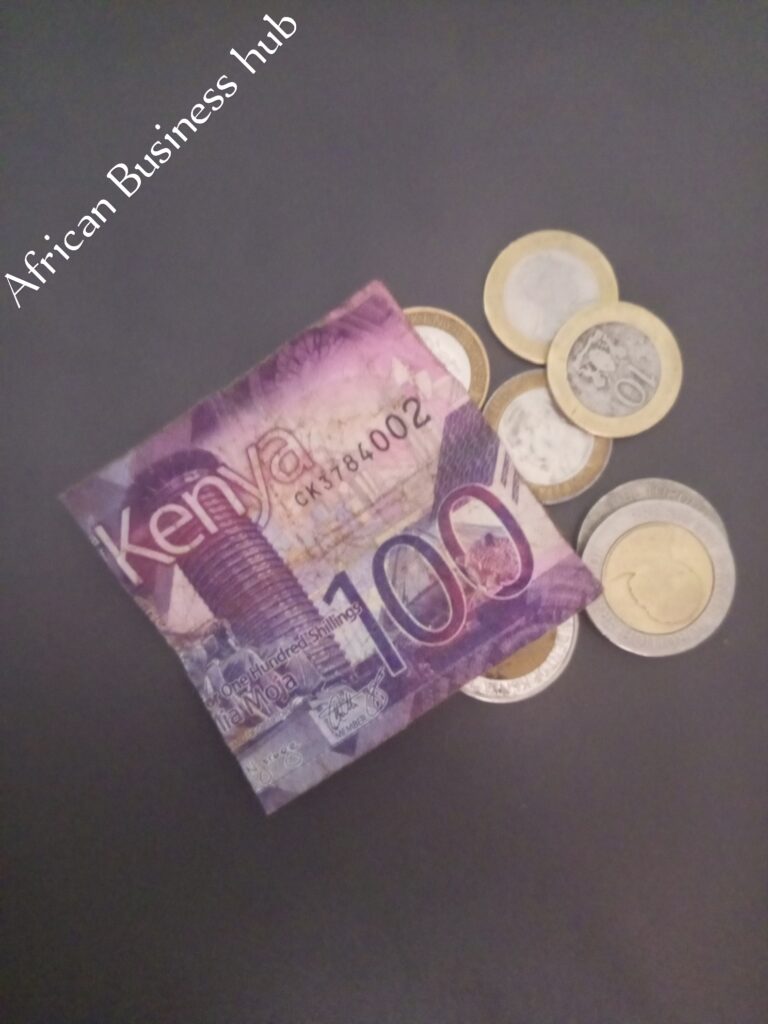How to survive the tough economics times in the year 2024.
In the face of economic challenges prevailing in Kenya in 2024, individuals are tasked with navigating a complex financial landscape. The ability to not only survive but thrive in such conditions hinges on adopting a proactive and strategic approach to personal finance. This article serves as a comprehensive guide, offering practical insights and tailored strategies for Kenyan citizens to weather tough economic times. From evaluating personal finances and creating realistic budgets to exploring additional income sources, managing debts, and making informed investments, each section provides actionable steps designed to enhance financial resilience in the unique context of Kenya. As we delve into the nuances of the Kenyan economic landscape, the goal is to empower individuals with the knowledge and tools necessary to overcome challenges, maximize opportunities, and build a robust financial foundation for the future.
Kenyan Economic Landscape
In 2024, Kenya faces a multifaceted economic landscape marked by several challenges. Rising inflationary pressures are impacting the cost of goods and services, straining household budgets and eroding purchasing power. Foreign exchange volatility adds complexity, affecting the prices of imported goods and contributing to overall economic instability. The country grapples with a significant public debt burden, limiting the government’s capacity to invest in critical sectors and potentially hampering economic growth. High levels of unemployment pose challenges in the job market, adding stress to personal finances. Trade imbalances, where imports outweigh exports, present difficulties that need addressing for a healthy economic environment. Kenya’s heavy reliance on agriculture makes the economy vulnerable to external factors such as climate change and market uncertainties. Persistent infrastructure gaps hinder economic activities and limit growth opportunities in various sectors. Global economic uncertainties, including geopolitical tensions and market fluctuations, have repercussions on Kenya. While strides have been made in technology, challenges persist in harnessing innovation for economic growth, necessitating efforts to bridge the digital divide. The aftermath of the COVID-19 pandemic continues to impact Kenya, with disruptions in various sectors affecting economic recovery efforts. Navigating these challenges requires a proactive and informed approach, understanding the specific dynamics at play in the Kenyan context is essential for developing effective strategies for financial resilience.
Financial Assessment and Planning in the Kenyan Context
In navigating the economic challenges of Kenya in 2024, a comprehensive financial assessment is paramount. Individuals must meticulously evaluate their personal finances, taking into account the nuances of the Kenyan economic landscape. This includes a keen awareness of factors such as inflation, foreign exchange volatility, and the impact of the local job market on income stability. By understanding these dynamics, individuals can make informed decisions regarding their financial health.
Subsequently, creating a strategic financial plan becomes crucial in charting a course through the economic complexities of Kenya. This plan should be meticulously aligned with local circumstances, considering the specific cost of living, inflation rates, and economic trends prevalent in the country. Addressing these elements ensures that the financial plan is not only realistic but also tailored to the unique challenges and opportunities presented by the Kenyan economic environment.
Moreover, the strategic financial plan should encompass contingency measures to navigate uncertainties, providing a roadmap for individuals to safeguard their financial well-being. Whether adjusting spending patterns, exploring additional income sources, or optimizing investments, a locally tailored financial plan serves as a proactive tool for individuals to not only survive but thrive amidst the economic intricacies of Kenya in 2024.
Budgeting for Stability in Kenya
Establishing a resilient financial foundation in the face of economic challenges in Kenya begins with crafting a realistic budget that reflects the unique cost of living in the country. Individuals must carefully consider the inflationary pressures and varying expenses associated with the Kenyan economic conditions. This entails a meticulous assessment of daily, monthly, and annual costs, factoring in essentials such as housing, utilities, transportation, and healthcare.
Once the budget is in place, the next critical step involves prioritizing essential expenses based on local conditions. Identifying and categorizing needs versus wants becomes paramount. Essentials, such as rent or mortgage payments, utility bills, and healthcare, should take precedence in the budget to ensure stability and financial security. This prioritization is especially crucial in an environment where inflation and economic uncertainties can impact the overall cost of living.
Furthermore, the budgeting process should also allow for flexibility, recognizing that unforeseen circumstances may arise. By aligning the budget with the specific cost dynamics of living in Kenya and prioritizing essentials, individuals can proactively manage their finances, enhancing their ability to weather economic challenges and maintain stability in their financial lives.
Managing Emergency Funds in the Kenyan Context
In the Kenyan economic landscape of 2024, building and maintaining a robust emergency fund is a strategic pillar for financial resilience. Recognizing the economic uncertainties prevalent in Kenya, individuals must prioritize creating a financial safety net to buffer against unforeseen challenges. This involves setting aside funds in a dedicated emergency savings account, with the goal of covering essential expenses in times of crisis.
Equally important is the judicious utilization of emergency funds within the Kenyan context. Individuals should carefully assess the nature of emergencies and prioritize their spending to address critical needs. Whether facing unexpected medical expenses, job loss, or other unforeseen circumstances, tapping into the emergency fund should be a deliberate and well-considered decision.
Understanding the specific economic challenges in Kenya, such as inflation and job market fluctuations, individuals can tailor their emergency fund management strategies accordingly. Regularly reviewing and adjusting the fund’s size based on changing economic conditions ensures that it remains a reliable financial cushion. Ultimately, in a Kenyan context characterized by economic uncertainties, a well-maintained emergency fund becomes a key resource for individuals to navigate challenges and maintain financial stability.

Debt Relief Strategies for Kenyan Citizens
In the Kenyan financial landscape of 2024, effectively managing debts is integral to maintaining financial stability. Prioritizing and addressing debts require a keen understanding of the specific economic challenges faced by Kenyan citizens. Individuals should assess their outstanding debts, considering factors such as interest rates, repayment terms, and the impact on overall financial health.
Exploring debt reduction options tailored to Kenya’s context becomes essential. This may involve negotiating with creditors, consolidating high-interest debts, or exploring government-supported debt relief programs. Being aware of available resources and support mechanisms specific to the Kenyan financial system enables individuals to make informed decisions regarding their debt management strategies.
Moreover, adopting proactive measures to avoid accruing additional debt is crucial. This may involve revisiting spending habits, creating a realistic budget, and seeking financial advice to navigate debt repayment effectively. By prioritizing and strategically managing debts within the unique parameters of the Kenyan financial landscape, individuals can alleviate financial burdens and work towards long-term financial well-being.
Maximizing Income in the Kenyan Job Market
In the dynamic job market of Kenya in 2024, individuals are challenged to maximize their income by identifying additional sources of revenue tailored to the local context. Understanding the nuances of the Kenyan job market is essential, considering factors such as industry demand, skills in demand, and emerging opportunities.
One avenue to boost income is by exploring side hustles and freelance opportunities specific to Kenya. This might involve leveraging skills or talents in high demand locally, such as digital skills, content creation, or services aligned with emerging industries. Engaging in part-time work or freelance projects not only supplements income but also provides a degree of financial flexibility.
Moreover, individuals should stay attuned to emerging trends in the Kenyan economy and job market, adapting their skill set accordingly. Embracing entrepreneurship, whether through small businesses or online ventures, can also contribute to diversified income streams.
In navigating the Kenyan job market, a proactive approach to identifying and capitalizing on additional income sources enhances financial resilience and empowers individuals to thrive amidst economic uncertainties.
Adapting Spending Habits to Kenyan Realities
Adapting spending habits to the realities of Kenya’s economic landscape in 2024 is essential for financial stability. Individuals must prioritize cutting non-essential expenses while taking into account the local cost of living. This involves a conscious effort to reevaluate spending patterns and identify areas where adjustments can be made without compromising essential needs.
Providing practical tips for cost reduction applicable in Kenya is crucial in this context. Strategies may include exploring more affordable alternatives for daily expenses, taking advantage of discounts and promotions, and embracing a more frugal lifestyle. Additionally, individuals can benefit from understanding local markets and making informed choices about where and how to make purchases.
By aligning spending habits with the economic realities of Kenya, individuals can better navigate challenges, optimize their resources, and ensure financial well-being in the face of economic uncertainties. This proactive approach not only helps in the short term but also establishes a foundation for long-term financial resilience.
Leveraging Kenyan Government Assistance Programs
Leveraging Kenyan government assistance programs is a crucial strategy for individuals navigating economic challenges in 2024. An overview of available support programs provides individuals with insights into the resources offered by the government to address financial hardships. This may include programs related to unemployment benefits, small business support, education grants, and healthcare assistance.
Guidance on how to access and make the most of government aid is equally important. Individuals should stay informed about eligibility criteria, application processes, and any deadlines associated with these programs. Seeking assistance from government agencies, community centers, or online resources can provide valuable information on optimizing the benefits available.
By actively engaging with and leveraging government assistance programs, individuals can enhance their financial resilience, receive necessary support during challenging times, and contribute to the overall stability of their households in the context of the Kenyan economic landscape.
Strategic Investments for Kenyan Citizens
In the dynamic economic conditions of Kenya in 2024, making strategic investments is crucial for financial growth and stability. Smart investment choices require a careful consideration of the specific economic challenges faced by Kenyan citizens. This involves staying informed about market trends, inflation rates, and other factors that influence investment opportunities.
Diversification and risk management strategies tailored to Kenyan investors are paramount. Diversifying investment portfolios across various asset classes helps mitigate risks associated with market volatility. Additionally, understanding and managing risk within the context of the Kenyan economy is essential for optimizing returns while safeguarding investments from potential downturns.
Kenyan citizens should explore investment options that align with the local economic landscape, such as real estate, agriculture, or sectors showing resilience in the face of challenges. Seeking advice from financial professionals with a deep understanding of the Kenyan market can provide valuable insights for making informed investment decisions.
By adopting a strategic approach to investments, individuals in Kenya can navigate economic uncertainties, capitalize on opportunities, and build a robust financial foundation for the future.
To summarize, navigating the tough economic times in Kenya in 2024 requires a holistic and adaptive approach to personal finance. Understanding the intricacies of the Kenyan economic landscape is fundamental, from evaluating personal finances and crafting realistic budgets to strategically managing debts and building emergency funds. Maximizing income through upskilling and exploring local opportunities, coupled with prudent spending habits, contributes to financial resilience.
Career resilience in the Kenyan context involves staying competitive through continuous upskilling and navigating industry-specific challenges. Leveraging government assistance programs and making smart, tailored investments further enhances financial stability. By embracing these strategies, Kenyan citizens can not only survive but thrive amidst economic uncertainties. The proactive and informed measures discussed empower individuals to weather challenges, seize opportunities, and build a resilient financial future in the dynamic and evolving economic environment of Kenya.

